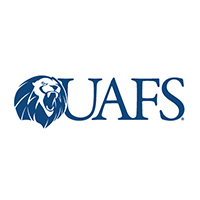
2+2 Transfer Program Overview
UACCM has made agreements with local four-year universities in order to clarify and streamline the transfer process. These agreements are known as 2+2 Transfer Agreements. On this page, you will find the exact requirements to take at both UACCM and the University of Arkansas - Fort Smith based on the desired career path.
UACCM students should work closely with their academic advisor to ensure all requirements are met for the transfer agreement.
A student’s degree program requirements are those specified in the catalog in effect at the time of declaration of program major. Students must meet the program requirements and the graduation requirements as indicated by institutional and college policy. The program can be changed only with the approval of the official advisor. If original courses are eliminated, students may be required to meet new curriculum requirements in the degree program. If students are not enrolled for two or more consecutive terms (excluding summer terms), they must reenter under the program requirements of the current catalog. Students are responsible for understanding program requirements and changes.
Degree Requirements
Program Learning Outcomes
Students who successfully complete the Associate of Arts in General Education degree will be able to:
Effective Communication
- Analyze/evaluate information.
- Communicate ideas clearly and effectively in written format.
- Communicate ideas clearly and effectively in verbal format.
Information Literacy
- Retrieve information through printed or electronic sources.
- Analyze information through the use of appropriate technologies.
Ethics and Values
- Demonstrate characteristics of a strong work ethic/accountability (soft skills/plagiarism issues).
- Evaluate ethical dilemmas.
Critical Thinking/Problem Solving
- Apply mathematical reasoning to quantitative information.
- Solve problems verbally, graphically, symbolically, or numerically.
- Distinguish between cause and effect.
Natural Sciences/Intellectual Inquiry
- Design an experiment to test a scientific hypothesis and interpret the results.
- Identify the unifying principles of science.
- Apply scientific concepts in real-world decision-making.
Human Cultures
- Identify and describe past and current forms of inquiry into changing human cultures across time and place.
- Evaluate current cultural and societal activities in light of their historical roots.
- Discuss the origins and processes of political, social, and/or economic institutions in the context of the global community.
Human Society
- Explain how social, cultural, and political institutions influence individuals or groups.
- Articulate attitudes, beliefs, and values from multiple perspectives in a civil manner.
- Evaluate the evolution of issues related to social justice.
Teamwork - Collaboration
- Demonstrate teamwork fundamentals through participation and mutual accountability.
- Evaluate and communicate strengths and weaknesses of their teamwork.
Creative Expression
- Explain at least one major form of artistic expression and the creative process.
- Perceive that interpretation of works of art may be influenced by the social and cultural environment and change through time.
- Engage in a creative process through application and/or expression.
